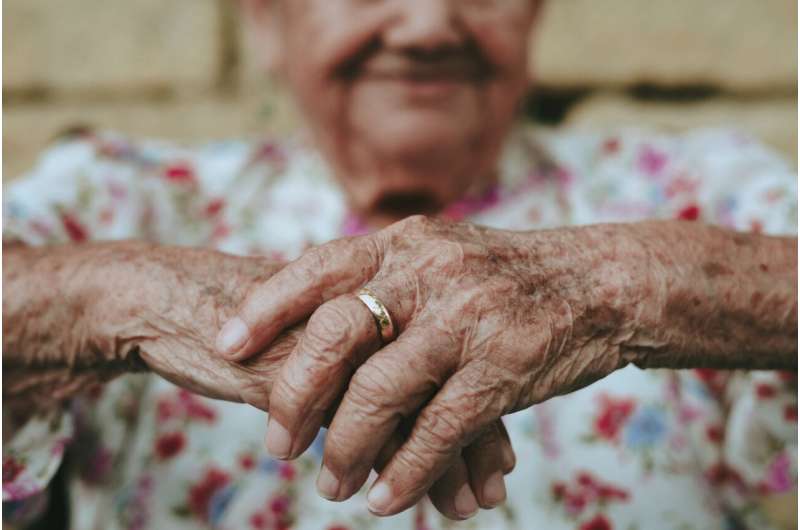This article has been reviewed according to Science X's editorial process and policies. Editors have highlighted the following attributes while ensuring the content's credibility:
fact-checked
peer-reviewed publication
trusted source
proofread
Many elderly people need intensive care in the year before they die, shows Swedish study

Dying is often associated with extensive health and elderly care. A recent study by Marcus Ebeling from the Max Planck Institute for Demographic Research and colleagues in Sweden came to this conclusion through a new way of analyzing data from the Swedish registry of the entire population. The researchers suggest that living longer may also mean spending more time dying.
Most deaths do not correspond to what we often call a "good" death—when one still has control over their own body and mind, and requires little health or hospice care. This is shown in a new study by Marcus Ebeling, a demographer at the Max Planck Institute for Demographic Research in Rostock, Germany, and his two colleagues at the Karolinska Institute in Stockholm.
"Our results indicate the hypothesis that rising life expectancy, especially at older ages, is partly due to a prolonged death process," says Ebeling. Demographers worldwide have been investigating for decades whether increasing life expectancy also brings more years of life in good health or instead longer periods of illness. The present study, published in the American Journal of Public Health, contributes to this ongoing discourse.
Studying all deaths in Sweden between 2018 and 2020, the researchers looked for the first time at the last year of life for persons at age 70 years and older. Using a novel study design, the team identified six different types of trajectories to death, depending on whether and how much medical care and elder care was needed in the last year of life.
"Our results show that most people over 70 in Sweden are in long-term care during the last year of life," says Marcus Ebeling. In addition, after analyzing the data, the researchers recognize that advanced medical care and nursing needs are even more common among deaths over 83 (the current average life expectancy in Sweden). As the researchers note, it is these trajectories that are likely to be relatively expensive for the health care system.
First study valid for the entire population
"As far as we know, our study is one of the first with a comprehensive database of all deaths over the age of 70, showing the circumstances under which people die," says Marcus Ebeling. Previous studies often focused on specific sub-aspects of pre-death health care or the social environment of the dying, and have usually relied on smaller samples of data, such as from hospitals or hospices.
"Our approach involves the total population, including those who are traditionally difficult to reach, such as people in nursing homes. This allows us to draw a direct link between the different paths to death, age at death, and mortality in the overall population," says Marcus Ebeling.
Insights into how people experience the end of life are necessary before a debate can be held about the process of death and what "good" dying really means. "Such a debate is long overdue and we are providing a further step with our study," says Marcus Ebeling.
More information: Marcus Ebeling et al, Variation in End-of-Life Trajectories in Persons Aged 70 Years and Older, Sweden, 2018‒2020, American Journal of Public Health (2023). DOI: 10.2105/AJPH.2023.307281



















